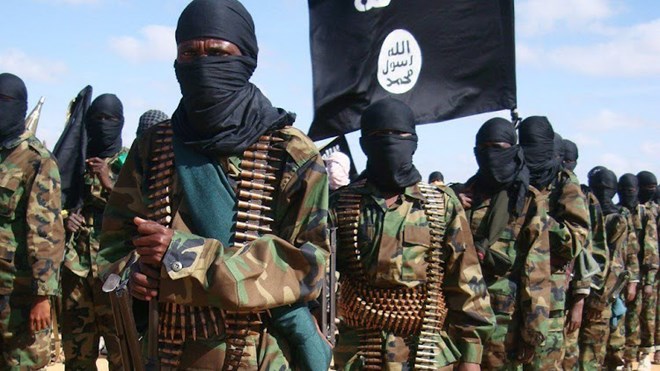
by GORDON OSEN
Thursday March 21, 2024

SECURITY THREAT: al-Shabaab.
Image: FILE
Kenya's counter-terrorism efforts against al Shabaab are paying off and have earned global recognition.
Terrorism deaths attributed to the Somalia-based group fell from 800 in 2022 to 499 in 2023, a decline of almost 38 per cent.
Of these deaths, 86 per cent occurred inside Somalia and the remaining 14 per cent in Kenya.
Al Shabaab was responsible for 70 deaths in Kenya in 2023, the most since 2019.
This is according to the Global Terrorism Index 2024, which shows the impact of terrorism in Kenya decreased from high in 2022 to medium in 2023.
The report authored by the Sidney-based Institute for Economics and Peace says Kenya scored 5.616 in the index. The country with the highest score, meaning grappling with biggest impact of terrorism in the world, is Burkina Faso that scored 8.571.
Malaysia has the least impact in the index at 0.192.
State security agencies are bullish in the war against al Shabaab, saying the country attained the improvement in global rating due to ongoing multiagency collaboration in counter-terrorism.
Multiagency security operations against al Shabaab are ongoing in Lamu and Northeastern region, which have led to killing of top terrorists, destruction of makeshift camps and successful arrest and/or prosecution of terrorists.
The report appreciates Kenya's efforts in fighting al Shabaab inside the country as well as offering a helping hand to Somalia, where the terrorist group is domiciled.
The government says it is committed to fighting terrorism to reduce its impact to guarantee security and prosperity.
This will be achieved by sustained modernisation of security establishment and equipment to ensure accurate intelligence gathering and processing, bearing in mind the need for precise operations that not only take out the malign actors but also deter future incidents.
"There are also deliberate efforts by the government to invest in soft power approach to empower communities to work with security agencies especially through sharing information on terrorism activities for action," the government said through the Office of the President.
"Additionally, the government is using development approach to deal with violent extremism and terrorism by investing in infrastructure and other economic projects like LAPSSET to stimulate the economy across the country."
Citizens and other stakeholders are encouraged to support the government in fighting terrorism.
However, the report says al Shabaab still poses a major threat to the country as the Al Qaeda affiliate retained its nine-year consecutive record of killing more than 400 people annually by its terror activities.
The group was rated by the index as the fourth deadliest globally, killing 499 people from 227 attacks in 2023.
In Kenya, the report says, terrorism deaths attributed to al Shabaab increased from 58 to 70 in 2023.
Most of the deaths occurred in Lamu close to the Somali border, which recorded 26 deaths in 2023, ten more than the year prior.
"This was followed by Garissa and Mandera counties, which collectively recorded 37 deaths," the index report says.
The deadliest al Shabaab attacks in Kenya last year involved roadside bombings, one targeting soldiers in Lamu and the other targeting police in Garissa.
Ten people were killed in each attack and al Shabaab claimed responsibility.
However, the efforts by the Kenyan government are shown to have blunted the edge of the group as now most of its carnage is inside Somalia.
Also, although the terrorists killed 499 people in 2023, the figures show a decline, proving that the force against it could be working.
The report says that part of the problem in Kenya's strategy is the failure to manage the spill over of its operation in Somalia against the group, making them cross over and commission attacks.
It says "the surge of al Shabaab militants crossing into Kenya [is] compounded by a lack of law enforcement personnel along the border."
Also, the "changes to Kenya's security leadership have exacerbated the situation, leading to a security gap that militants are exploiting to conduct attacks."